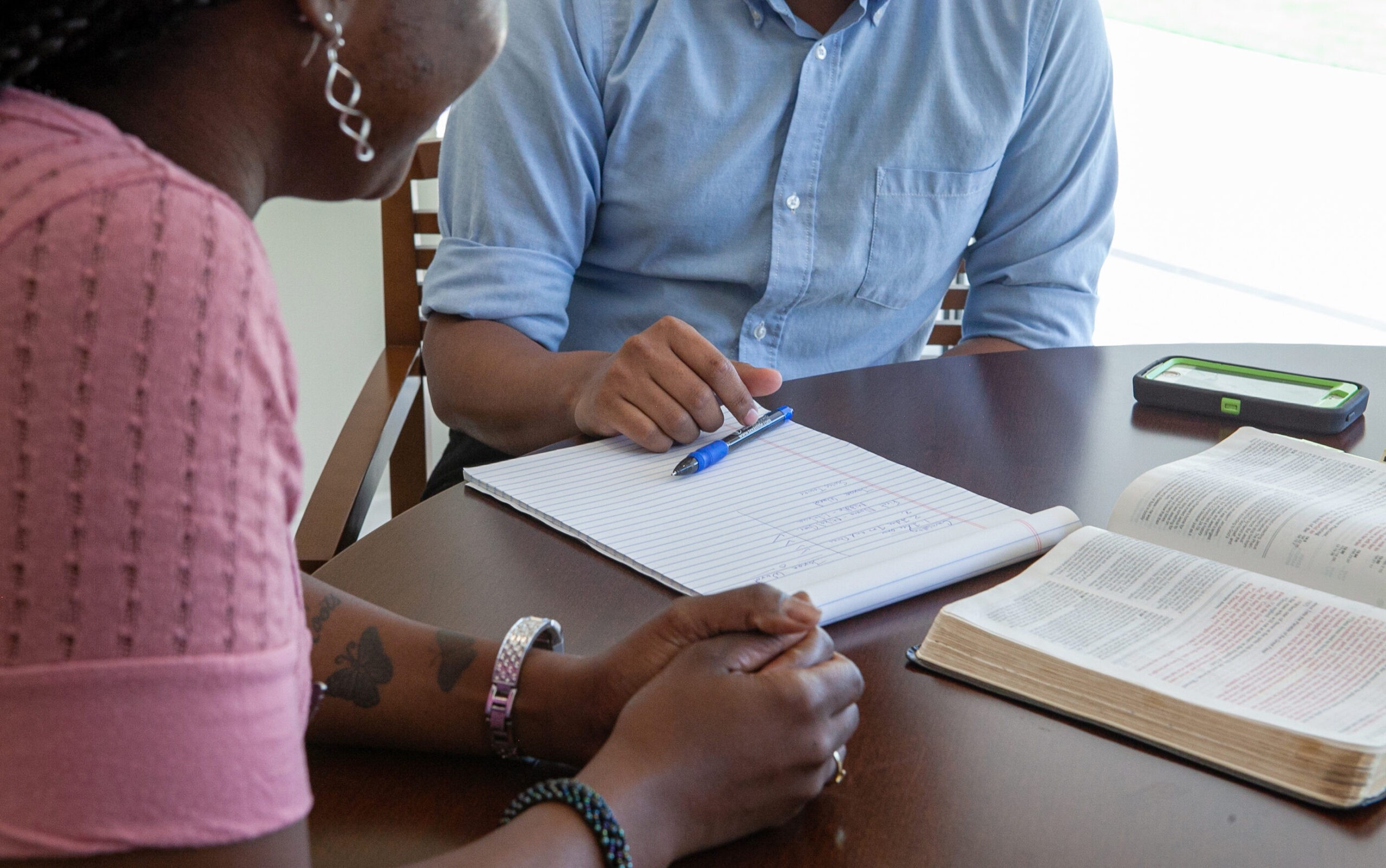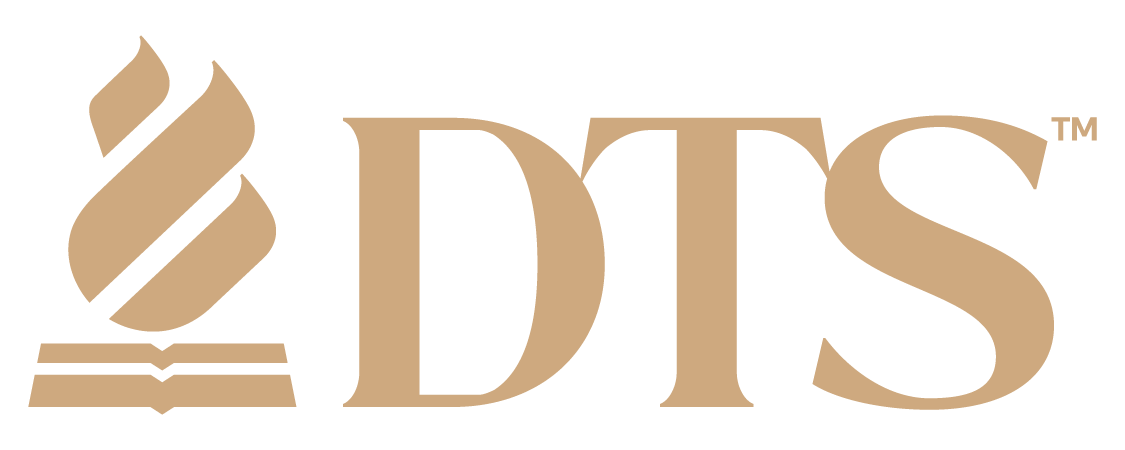
The Doctor of Philosophy degree program is designed to prepare students to serve as Christian scholars and educational leaders around the world by providing advanced training in biblical and theological research, writing, and teaching.
The DTS Doctor of Philosophy (PhD) combines the highest of standards of academic scholarship with a heart for God’s Word and the theology of the church.
Overview
Students in the PhD program focus their studies in one of four concentrations: Bible Exposition, New Testament, Old Testament, or Theological Studies. Regardless of the chosen concentration, students complete 33 credit hours of coursework and 3 credit hours of dissertation.
Bible Exposition
Students in the Bible Exposition concentration must complete PD8100 Research Procedures (1 credit hour), 26 credit hours in required Bible Exposition courses, 6 credit hours of electives, and 3 credit hours of dissertation.
New Testament
Students in the New Testament Studies concentration must complete PD8100 Research Procedures (1 credit hour), 9 credit hours in required New Testament Studies courses, 23 credit hours of electives, and 3 credit hours of dissertation.
Old Testament
Students in the Old Testament Studies concentration must complete PD8100 Research Procedures (1 credit hour), 24 credit hours in required Old Testament Studies courses, 8 credit hours of electives, and 3 credit hours of dissertation. Students must also complete a course in Biblical Aramaic, either as a prerequisite master’s-level course or as an elective course in the PhD program.
Theological Studies
Students in the Theological Studies concentration must complete TS8100 Research Methods (1 credit hour), 18 credit hours in required Theological Studies courses, 14 credit hours of electives, and 3 credit hours of dissertation.
Requirements
Admission Requirements and Process
In addition to the common admissions requirements for all degree programs (please refer to the Admission section of this catalog), applicants to the PhD program must:
- hold (or are about to complete) one of the following degrees: Master of Theology degree (ThM), Master of Divinity degree (MDiv), Master of Sacred Theology (STM) degree, or a qualifying Master of Arts (MA) degree;
- have an academic record that demonstrates superior ability; and
- satisfactorily pass a written examination in the field of their intended major and an oral examination of their Christian experience, scholarship, theology, achievement, and purpose.
Students admitted to the PhD program without the DTS ThM should expect additional coursework as part of their individualized requirements.
Applications are submitted to the Admissions office. These formal applications include official transcripts, a writing sample, references, and a biographical sketch. Once the initial applications are validated, a prospective student interacts with the PhD Studies office to complete the admissions process. To be admitted, applicants must be interviewed by faculty, satisfactorily pass a written examination in the field of their intended concentration, and pass an oral examination of their Christian experience, scholarship, theology, achievement, and purpose. This extensive admissions process provides opportunity for the applicant and DTS to assess whether the prospective student and program are a good fit for one another.
Applications for the doctoral program may be submitted at any time of the year. However, because of the rigorous nature of the vetting process, one should allow for at least 3–4 months for completion of the process. Therefore, applicants are encouraged to apply at least 7–9 months prior to the beginning of the term they intend to start classes.
Course Requirements
On acceptance to the PhD program, each student will receive a coursework plan developed in consultation with the PhD Studies office and the student’s chosen department of study. Students often begin their programs by completing prerequisite courses. The number of prerequisite courses and time required depend on the student’s demonstrated competencies in Hebrew, Greek, hermeneutics, theology, and ministry skills. During completion of prerequisite master’s-level courses, students are classified as PhD students. Students who have recently completed a ThM degree are less likely to need prerequisite courses.
Beyond any prerequisite courses, all students complete 33 credit hours of doctoral courses plus the dissertation. Additionally, students will demonstrate competencies in modern languages (normally Theological French and Theological German). At the conclusion of coursework, students sit for written and oral comprehensive exams. On satisfactory completion of exams, they are eligible to apply for candidacy status.
Only courses taken after receiving the prerequisite degree (MA, MDiv, ThM, or STM) can be credited toward the degree of Doctor of Philosophy. Normally work done at other institutions may not be credited toward the 33 hours of DTS doctoral coursework. A minimum grade of B- must be received in every course credited toward graduation.
Residential Requirements
The program normally includes at least three years of study, a minimum two years of which must be spent in residence in Dallas. All work leading to the PhD degree must be completed within eight years from the time of matriculation.
STM Completion
Students who fail the qualifying exams on completion of Stage 1 of the PhD program may choose to complete the STM degree by finishing any requirements that remain for that degree. In most cases, this will require only 6 more hours of coursework. (This assumes that students have completed the 26 hours of coursework required for Stage 1 of the PhD program, since the STM degree requires 32 hours for completion.) The additional 6 hours should be taken in the following segments: 3 hours in Communications, 2 hours in Theological Studies (if the major is Biblical Studies) or 2 hours in Biblical Studies (if the major is Theological Studies), and 1 hour of Internship credit. Students must also have completed coursework in soteriology and eschatology in their master’s program.
Students may transfer a maximum of 6 hours into the STM program, even if additional transfer was considered toward Stage 1 requirements of the PhD program. Additional information on STM completion is available from the Advising Center.
Admission to Candidacy
Students may be admitted to candidacy for the PhD degree by action of the faculty only after (1) completing all residence requirements leading to the degree; (2) passing written and oral examinations in the fields within the major; (3) meeting foreign language requirements; and (4) evidencing, to the satisfaction of the faculty, proven Christian character, ability, and acceptability for Christian ministry, and adherence to the following doctrines: the authority and inerrancy of Scripture, the Trinity, the full deity and humanity of Christ, the spiritual lostness of the human race, the substitutionary atonement and bodily resurrection of Christ, salvation by faith alone in Christ alone, and the physical return of Christ.
Students in the PhD program also must provide a written letter of church involvement from the local church the student has regularly attended while in seminary and a reference form completed by a pastor or spiritual overseer.
Dissertation Requirements
Students must register for and complete a dissertation of between 50,000 and 75,000 words on an approved subject. Details on the procedures and deadlines for the dissertation subject proposal, syllabus, first and final drafts, and oral defense are provided through the PhD Studies office.
Graduation Requirements
Students must register for and complete a dissertation of between 50,000 and 75,000 words on an approved subject. Details on the procedures and deadlines for the dissertation subject proposal, syllabus, first and final drafts, and oral defense are provided through the PhD Studies office.
Students must register for and complete a dissertation of between 50,000 and 75,000 words on an approved subject. Details on the procedures and deadlines for the dissertation subject proposal, syllabus, first and final drafts, and oral defense are provided through the PhD Studies office.
Program Goals
Students in the PhD program will:
- Demonstrate ability to perform viable scholarly research sufficient for contributing to a specified academic field of study
- Communicate effectively through written and oral channels
- Manifest traits of personal integrity, character, and spirituality
PhD Checklist
The appropriate seminary office will notify the student as soon as the results of the qualifying examinations are available.
Period of Course Work
- First language exam (must be passed before enrollment in the third semester)
- French
- German
- Second language exam (must be passed before enrollment in the fifth semester)
- French
- German
- Meet with the department coordinator for discussion of dissertation topic
- Meet with a Turpin Library staff consultant for discussion of dissertation topic proposal
- Dissertation topic approval by the PhD Studies Committee
Postcourse Work
- Notify PhD Studies Office of intention to take the written comprehensive exams (at least two weeks in advance)
- Written comprehensive exams (begin any time after September 1 and complete within 15 calendar days before March 15)
- Oral comprehensive exam (within 15 days of completion of written exams)
- Submit application for admission to candidacy to the Registrar’s Office
Dissertation Timeline
All submissions of dissertation material must be registered with the PhD Studies Office. The dates within the following parentheses indicate the dates of submissions in relation to graduation—the first date is for May graduation, the second is for August graduation, and the third is for December graduation.
- Register for the dissertation course
- File the syllabus
- Meet with the dissertation committee
- Submit the first two chapters (September 15, January 1, or May 1)
- Submit the entire first draft (December 1, March 15, or July 15)
- Meet with the dissertation committee for the oral defense of the dissertation (on or before February 15, May 30, or September 30)
- Submit the preliminary final draft (March 15, July 1, or November 1)
- Submit the final draft (April 15, August 1, or December 1) and pay the filing fee at the PhD Studies Office
- Publish the dissertation through University Microfilms International
PhD Common Questions

Financial Aid
Through our donors and Foundation, we are able to offer hundreds of scholarships to students every year.

Logos Bible Software
Every student at DTS receives a copy of Logos Bible Software customized with additional commentaries and resources, and DTS courses integrate Logos into assignments and learning.
